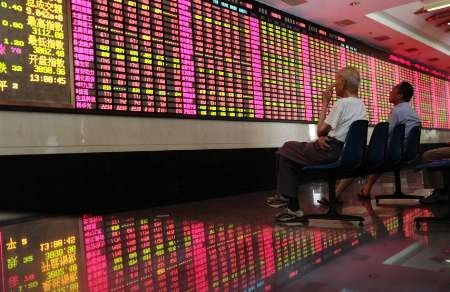Making Sense of the Market's Reaction to the US Debt Talks
(COLUMN)

As time marches towards August 2, the day the US would presumably default if the debt ceiling isn't raised, calls are growing louder and louder for a resolution.
"The most important thing is that we remove this threat of default from the country for the next 18 months," said Timothy Geithner on CNN recently.
"What we cannot do - because it would be irresponsible - is to leave the threat of default hanging over the American economy for a longer period of time," he added.
Geithner's words that day are actually pretty tame. Previously, he, Federal Reserve Chairman Ben Bernanke, and others have warned about catastrophic consequences that could eclipse even the 2008 bankruptcy of Lehman Brothers.
However, investors don't seem to care at all. In fact, US Treasuries (debt) has actually rallied in the past six months.
One explanation is that default is "not going to happen," in the words of Geithner in his CNN interview. However, investors view risk as a negative and even the impossibility of default is no reason to buy Treasuries.
It could be that a default doesn't really matter that much. While it's true that any default would be a technical default and the debt market has a surprisingly short memory (any backlash only lasts a few years), it's still no reason to buy Treasuries.
The reality is that other factors likely drove the price of Treasuries higher.
The biggest factor is likely that QE2 has ended and Bernanke gave indications that QE3 is off the table indefinitely (because the trade-offs are "less attractive"). Investors, therefore, are relieved that the US has shelved its blatant policy of debt monetization.
There is also the possibility that investors are attracted to the Republicans' hard-line stance against increased spending (although they also insist on tax breaks).
Finally, it's possible that the safe-haven status of Treasuries is ironically giving it a boost in this period of heightened uncertainty. There are no viable safe-haven substitutes for Treasuries; the markets for gold and Swiss bonds are simply too small.
In the end, fixed-income instruments are judged by two things: credit risk and inflation risk.
For US Treasuries, credit risk takes a backseat, even in light of the US debt impasse. Inflation is by far the bigger issue.
In the past six months, Treasuries likely rallied because investors believe US policies and economics will not likely erode away the purchasing power of Treasuries.As time marches towards August 2, the day the US would presumably default if the debt ceiling isn't raised, calls are growing louder and louder for a resolution.
"The most important thing is that we remove this threat of default from the country for the next 18 months," said Timothy Geithner on CNN recently.
"What we cannot do - because it would be irresponsible - is to leave the threat of default hanging over the American economy for a longer period of time," he added.
Geithner's words that day are actually pretty tame. Previously, he, Federal Reserve Chairman Ben Bernanke, and others have warned about catastrophic consequences that could eclipse even the 2008 bankruptcy of Lehman Brothers.
However, investors don't seem to care at all. In fact, US Treasuries (debt) has actually rallied in the past six months.
One explanation is that default is "not going to happen," in the words of Geithner in his CNN interview. However, investors view risk as a negative and even the impossibility of default is no reason to buy Treasuries.
It could be that a default doesn't really matter that much. While it's true that any default would be a technical default and the debt market has a surprisingly short memory (any backlash only lasts a few years), it's still no reason to buy Treasuries.
The reality is that other factors likely drove the price of Treasuries higher.
The biggest factor is likely that QE2 has ended and Bernanke gave indications that QE3 is off the table indefinitely (because the trade-offs are "less attractive"). Investors, therefore, are relieved that the US has shelved its blatant policy of debt monetization.
There is also the possibility that investors are attracted to the Republicans' hard-line stance against increased spending (although they also insist on tax breaks).
Finally, it's possible that the safe-haven status of Treasuries is ironically giving it a boost in this period of heightened uncertainty. There are no viable safe-haven substitutes for Treasuries; the markets for gold and Swiss bonds are simply too small.
In the end, fixed-income instruments are judged by two things: credit risk and inflation risk.
For US Treasuries, credit risk takes a backseat, even in light of the US debt impasse. Inflation is by far the bigger issue.
In the past six months, Treasuries likely rallied because investors believe US policies and economics will not likely erode away the purchasing power of Treasuries.
© Copyright IBTimes 2025. All rights reserved.





















